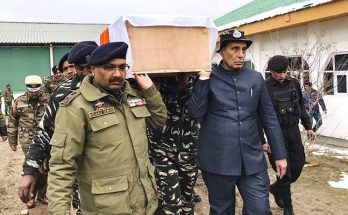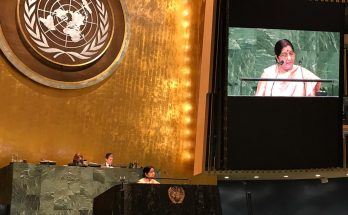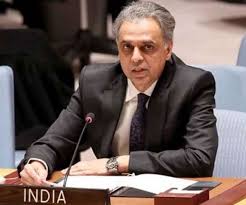Two nations, two narratives – “India sets up IITs and IIMs and Pakistan produces jihadis and set up terror organisations like Lashkar-e-Taiba and Jaish-e-Mohamed.” Taking an expose of Pakistan to a new level on the global stage at the annual UNGA jamboree, India’s External Affairs Minister Sushma Swaraj launched a savage indictment of Pakistan for sponsoring and supporting terror against India and the region.
In her hard-hitting speech at the United Nations General Assembly in New York on September 23, Sushma Swaraj was at her acerbic best, launching a scathing criticism of Pakistan’s Prime Minister Shahid Abbasi’s address where he had accused India of perpetuating state-sponsored terrorism and human rights violations.
Those listening had only one observation: “Look who’s talking!” A country that has been the world’s greatest exporter of havoc, death and inhumanity became a champion of hypocrisy by preaching about humanity and Human Rights from this podium,” she said at the 72nd United Nations General Assembly.
across the range of human welfare.
“Why is it that today India is a recognised IT superpower in the world, and Pakistan is recognised only as the pre-eminent export factory for terror? What is the reason for this have they ever thought? There is only one reason. India has risen despite the principle destination of Pakistan’s nefarious export of terrorism,” she said.
Read More









